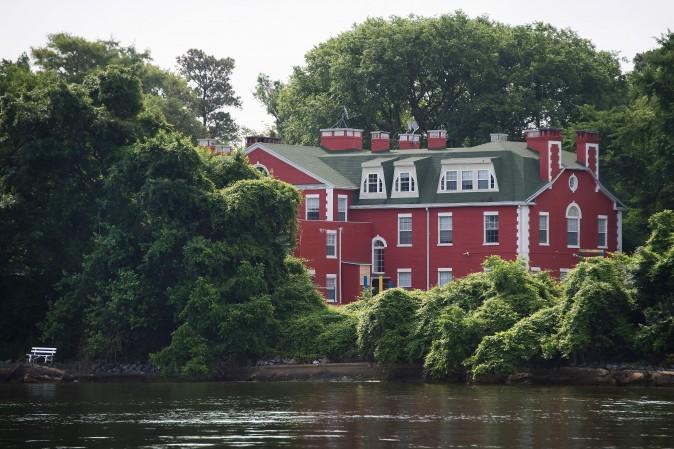Russia is considering retaliation against sanctions imposed by former President Barack Obama, possibly including expelling 30 U.S. diplomats and seizing two U.S.-owned properties in Russia.
Obama expelled 35 Russian diplomats and seized two Russian-owned properties in December in response to leaders of the CIA, FBI, and NSA accusing Russia of hacking a server of the Democratic National Committee (DNC) and leaking incriminating emails. The agencies never provided substantial proof and were prevented by the DNC from accessing the server.

Part of the Russian Federation's riverfront compound is seen from the water on Maryland's Eastern Shore in Centreville, Maryland on June 16, 2017. Jim Watson/AFP/Getty Images





